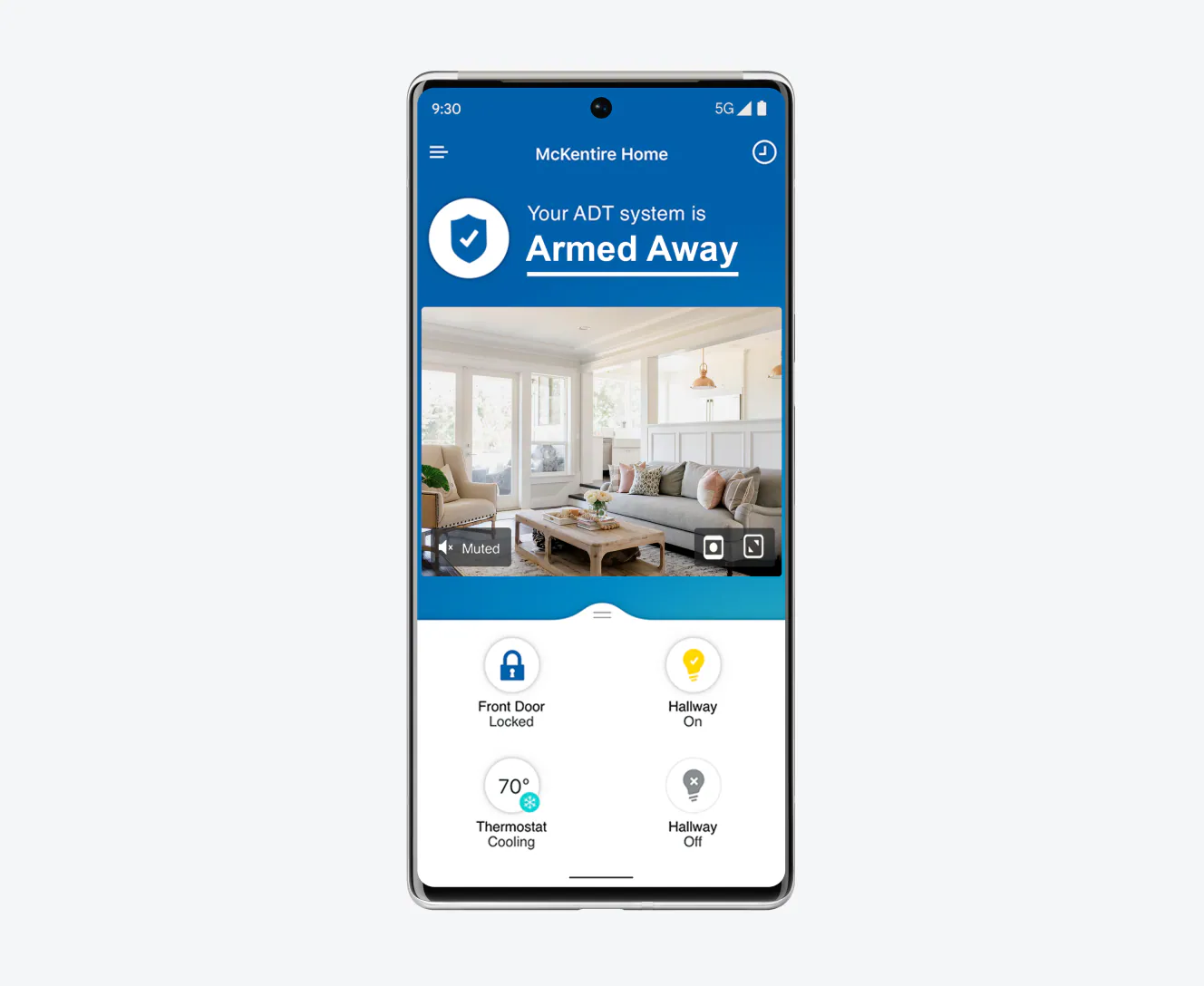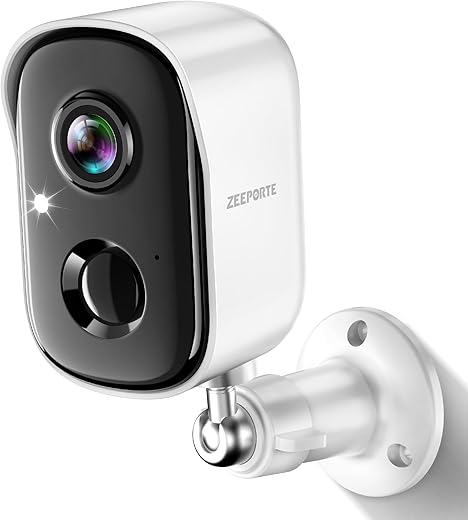Ring Alarm 2nd Gen vs. WiFi Home Alarm Kit
When it comes to enhancing home security, choosing the right system can be a bit overwhelming. Two popular options that often come up in conversation are the Ring Alarm 2nd Gen and the WiFi Home Alarm Kit. Both systems offer unique features and benefits, making it essential to understand how they compare to one another. In this discussion, I’ll dive into the key aspects of each system, exploring their functionalities, ease of installation, and overall performance to help you make an informed decision for your home security needs.
Home Protection

The Ring Alarm 8-piece kit (2nd Gen) is a comprehensive home security solution ideal for 1-2 bedroom homes, featuring essential components like a Base Station, Keypad, Contact Sensors, and a Motion Detector. With options for additional sensors and a subscription for professional monitoring, it offers flexible and reliable protection that can be easily integrated with Alexa for added convenience.
Smart Security

The Wireless Home Alarm System 9-Piece Kit offers easy DIY installation without any monthly fees, providing 24/7 protection for your home. With remote control through the Smart Life App and instant alerts, I can secure my space effortlessly and stay informed anytime, anywhere.
Ring Alarm 2nd Gen
System Components
Includes Base Station, Keypad, 4 Contact Sensors, 1 Motion Detector, 1 Range Extender
Monitoring Options
Requires a compatible Ring subscription for professional monitoring and certain features
Control Method
Control via Keypad and Ring app with subscription
Alarm Sound Level
Alarm sound level not specified
Installation
Requires some setup; installation details not specified
WiFi Home Alarm Kit
System Components
Includes Base Station, Keypad, 4 Contact Sensors, 1 Motion Sensor, 2 Remote Controls
Monitoring Options
No monthly fees; a one-time purchase with 24-hour protection
Control Method
Control via Smart Life App, Keypad, and Remote
Alarm Sound Level
120 dB loud alarm to deter intruders
Installation
DIY installation with no wiring or drilling required
Ring Alarm 2nd Gen
WiFi Home Alarm Kit
Ring Alarm 2nd Gen
WiFi Home Alarm Kit
Comparison table


Unique Selling Points (USPs)
Ring Alarm 8-Piece Kit (2nd Gen)
- Comprehensive Kit: Includes multiple sensors for extensive coverage.
- Z-Wave Compatibility: Can integrate with other smart home devices.
- Subscription Options: Access to additional features via a subscription plan.
Wireless Home Alarm System 9-Piece Kit
- More Sensors Included: Offers additional sensors for wider protection.
- No Subscription Fees: All features included without ongoing costs.
- Higher Siren Volume: Louder siren for more deterrent capability.
Pros and Cons
Ring Alarm 8-Piece Kit (2nd Gen)
Pros:
- Versatile integration with smart home devices.
- Real-time notifications via mobile app.
- Optional subscription for enhanced features.
Cons:
- Higher initial investment with optional subscription.
- Z-Wave devices may require additional configuration.
Wireless Home Alarm System 9-Piece Kit
Pros:
- Affordable price with no hidden costs.
- Comes with more sensors than the Ring kit.
- Easy setup and installation.
Cons:
- Fewer smart home integrations compared to the Ring system.
- Lacks some advanced features available through subscription.
Use Cases
- Ring Alarm 8-Piece Kit (2nd Gen):
- Ideal for tech-savvy users looking to integrate multiple smart home devices.
- Best for those who want optional subscription features for advanced functionalities.
- Wireless Home Alarm System 9-Piece Kit:
- Great for budget-conscious individuals seeking a robust security solution without ongoing fees.
- Suitable for renters or those in temporary living situations due to its easy setup.
Conclusive Assessment
While both products offer solid home security solutions, the Wireless Home Alarm System 9-Piece Kit stands out for its affordability and the inclusion of more sensors without the burden of a subscription, making it great for budget-conscious consumers. On the other hand, the Ring Alarm 8-Piece Kit (2nd Gen) excels in smart home integration and optional advanced features for those willing to pay a bit more.
Final Summary
In conclusion, if you prioritize budget and want a straightforward, effective security system without ongoing costs, the Wireless Home Alarm System 9-Piece Kit is the way to go. However, if you are looking for a more integrated system with advanced features and are willing to invest a little extra, the Ring Alarm 8-Piece Kit (2nd Gen) would be a better fit. Ultimately, your choice should depend on your specific needs and preferences in home security.


Guidelines for Comparing Home Security Systems
When choosing a home security system, such as the ‘Ring Alarm 2nd Gen’ versus a ‘WiFi Home Alarm Kit’, it’s essential to consider various factors to ensure you select the most suitable option for your needs. Here are some general guidelines and key elements to keep in mind during your comparison.
1. System Type
Wired vs. Wireless
- Wired Systems: Typically more reliable but can be complicated to install.
- Wireless Systems: Easier to install and more flexible but may be prone to interference.
DIY vs. Professional Monitoring
- DIY Systems: Generally more affordable and customizable, but you handle installation and monitoring.
- Professional Monitoring: Offers peace of mind with 24/7 monitoring but usually comes with recurring fees.
2. Key Features
Sensors and Cameras
- Motion Sensors: Look for systems with adjustable sensitivity settings.
- Cameras: Consider resolution, night vision, and field of view.
- Environmental Sensors: Smoke and carbon monoxide detectors can provide added safety.
Control Options
- Mobile App: Ensure the system has a user-friendly mobile app for easy monitoring and control.
- Smart Home Integration: Check compatibility with smart home platforms like Alexa, Google Assistant, or Apple HomeKit.
3. Installation Process
Ease of Installation
- Plug-and-Play: Some systems offer simple plug-and-play installation.
- Professional Installation: If you’re not handy, a system that includes professional installation may be beneficial.
4. Cost and Value
Initial Costs
- Compare the upfront costs of equipment and installation fees.
Recurring Costs
- Monthly Fees: Review any subscription fees for professional monitoring services.
- Additional Costs: Consider extra charges for cloud storage, additional cameras, or sensors.
5. Customer Support
Availability and Quality
- 24/7 Support: Check if the company provides round-the-clock customer service.
- Resources: Look for online resources like FAQs, installation guides, and troubleshooting tips.
6. Reviews and Reputation
User Feedback
- Check online reviews to gauge customer satisfaction and common issues.
- Look for ratings from independent review sites.
Brand Reputation
- Consider the brand’s history and experience in home security systems.
7. Warranty and Guarantee
Warranty Coverage
- Review the warranty period and what it covers.
- Look for systems that offer a money-back guarantee if not satisfied.
Read also:
news via inbox
Stay updated with the latest tips and offers. Subscribe to our newsletter today!















I’ve heard mixed reviews about the Ring Alarm. Anyone love it?
Are the monthly fees for both systems similar?
I love that the WiFi kit has more customization options. Makes it feel more personal.
Cool comparison! I was wondering which one has better range.
Battery backup is a must! How do these two compare?
Does the Ring Alarm work well with Alexa? That’s a big selling point for me.
I prefer a wired system over wireless. Does anyone else feel that way?
WiFi Home Alarm Kit sounds interesting! How easy is the setup?
Thanks for breaking it down! This helps a lot with my decision.
What about customer service experiences? That’s super important!